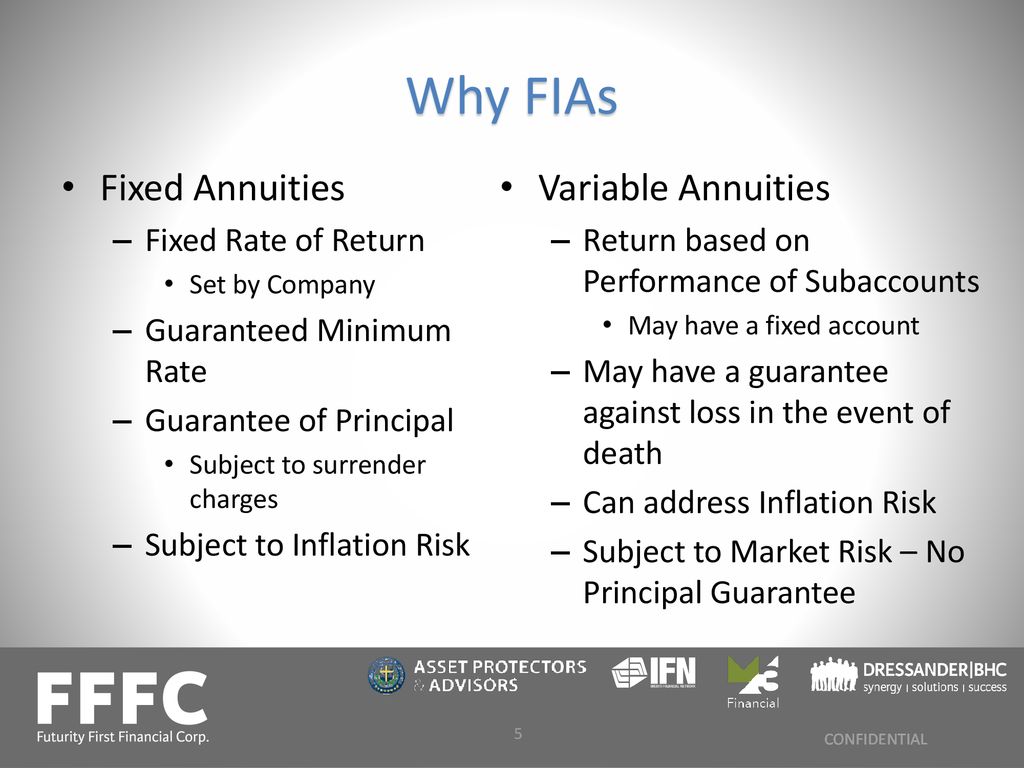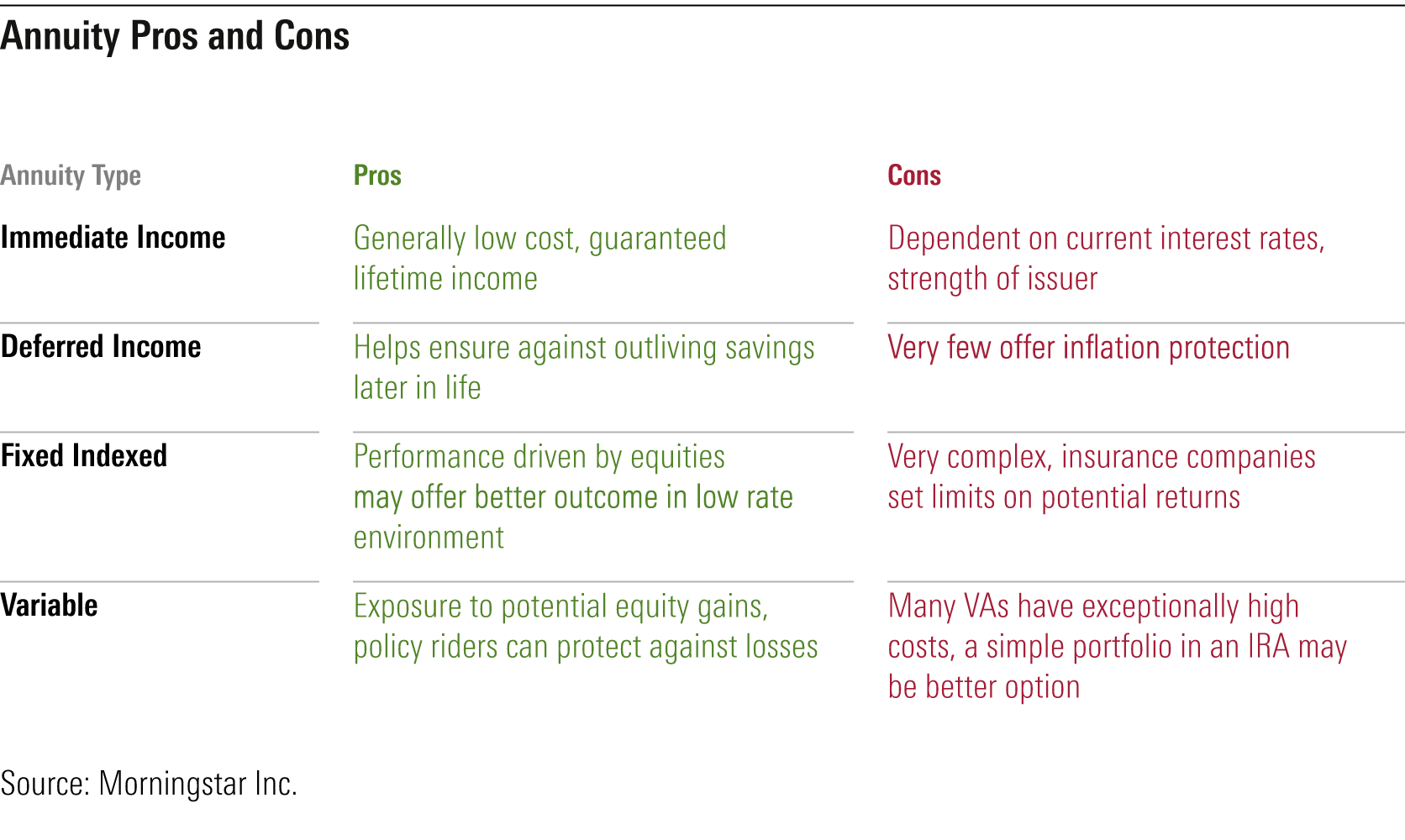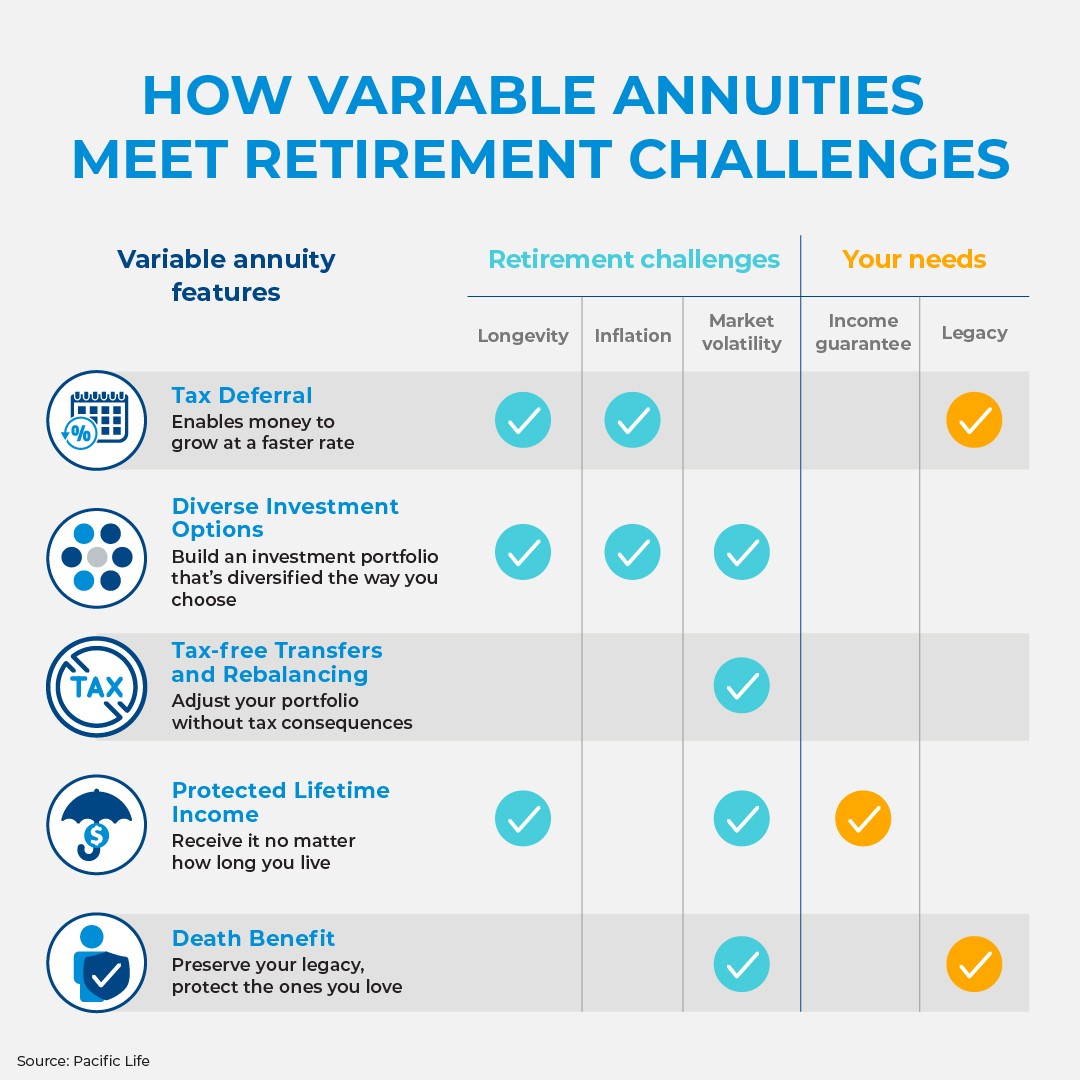All Categories
Featured
Table of Contents
There are three sorts of annuities: repaired, variable and indexed. With a taken care of annuity, the insurance firm guarantees both the rate of return (the passion price) and the payment to the capitalist. The rate of interest on a fixed annuity can alter with time. Often the rate of interest is taken care of for a number of years and after that modifications occasionally based upon current prices.
With a deferred fixed annuity, the insurance provider agrees to pay you no less than a defined interest rate throughout the time that your account is growing. With an immediate set annuityor when you "annuitize" your deferred annuityyou receive a predetermined set quantity of money, usually on a regular monthly basis (comparable to a pension).
While a variable annuity has the benefit of tax-deferred development, its yearly expenses are likely to be much more than the expenses of a regular mutual fund. And, unlike a taken care of annuity, variable annuities don't supply any type of guarantee that you'll earn a return on your financial investment. Rather, there's a danger that you might really lose cash.
Exploring the Basics of Retirement Options Key Insights on Your Financial Future Defining the Right Financial Strategy Pros and Cons of Various Financial Options Why Fixed Indexed Annuity Vs Market-variable Annuity Is Worth Considering How to Compare Different Investment Plans: A Complete Overview Key Differences Between Pros And Cons Of Fixed Annuity And Variable Annuity Understanding the Rewards of Long-Term Investments Who Should Consider Variable Vs Fixed Annuities? Tips for Choosing Tax Benefits Of Fixed Vs Variable Annuities FAQs About Planning Your Financial Future Common Mistakes to Avoid When Planning Your Retirement Financial Planning Simplified: Understanding Annuity Fixed Vs Variable A Beginner’s Guide to Smart Investment Decisions A Closer Look at Choosing Between Fixed Annuity And Variable Annuity
Due to the complexity of variable annuities, they're a leading source of investor problems to FINRA. Before buying a variable annuity, carefully read the annuity's prospectus, and ask the person marketing the annuity to clarify all of the product's features, cyclists, prices and restrictions. Indexed annuities commonly provide a minimal surefire interest rate combined with a passion price connected to a market index.
Recognizing the features of an indexed annuity can be confusing. There are several indexing approaches companies utilize to determine gains and, as a result of the range and complexity of the methods utilized to credit history passion, it's difficult to compare one indexed annuity to another. Indexed annuities are normally categorized as one of the complying with two kinds: EIAs offer a guaranteed minimum rate of interest (usually at the very least 87.5 percent of the costs paid at 1 to 3 percent rate of interest), as well as an additional rate of interest rate connected to the efficiency of several market index.

With variable annuities, you can spend in a range of securities including stock and bond funds. Stock market efficiency figures out the annuity's value and the return you will certainly get from the money you spend.
Comfortable with variations in the stock exchange and desire your investments to keep speed with rising cost of living over an extended period of time. Youthful and intend to prepare financially for retired life by reaping the gains in the supply or bond market over the lengthy term.
As you're developing up your retired life savings, there are many means to stretch your money. can be particularly helpful cost savings tools due to the fact that they assure an earnings amount for either a set duration of time or for the rest of your life. Repaired and variable annuities are two alternatives that supply tax-deferred development on your contributionsthough they do it in various methods.
Decoding Fixed Indexed Annuity Vs Market-variable Annuity A Closer Look at Fixed Income Annuity Vs Variable Growth Annuity What Is Indexed Annuity Vs Fixed Annuity? Features of Fixed Index Annuity Vs Variable Annuities Why Pros And Cons Of Fixed Annuity And Variable Annuity Can Impact Your Future Fixed Index Annuity Vs Variable Annuity: Simplified Key Differences Between Variable Annuity Vs Fixed Annuity Understanding the Risks of Long-Term Investments Who Should Consider Strategic Financial Planning? Tips for Choosing the Best Investment Strategy FAQs About Planning Your Financial Future Common Mistakes to Avoid When Planning Your Retirement Financial Planning Simplified: Understanding Fixed Vs Variable Annuity Pros And Cons A Beginner’s Guide to Fixed Income Annuity Vs Variable Annuity A Closer Look at Retirement Income Fixed Vs Variable Annuity
A supplies a surefire passion rate. Your agreement value will boost due to the amassing of guaranteed rate of interest revenues, implying it will not lose value if the market experiences losses.
A consists of spent in the stock exchange. Your variable annuity's investment efficiency will certainly affect the size of your savings. It may ensure you'll obtain a collection of payments that begin when you retire and can last the remainder of your life, provided you annuitize (start taking repayments). When you begin taking annuity payments, they will depend on the annuity worth back then.
Market losses likely will result in smaller payouts. Any kind of interest or other gains in either sort of agreement are sheltered from current-year taxes; your tax obligation obligation will come when withdrawals start. Allow's take a look at the core features of these annuities so you can make a decision just how one or both might fit with your general retired life method.

A fixed annuity's value will not decrease as a result of market lossesit's constant and steady. On the various other hand, variable annuity worths will certainly change with the performance of the subaccounts you elect as the markets fluctuate. Incomes on your taken care of annuity will highly depend upon its acquired price when purchased.
Conversely, payout on a repaired annuity bought when rates of interest are reduced are a lot more likely to pay earnings at a reduced price. If the passion rate is assured for the size of the agreement, earnings will certainly remain constant no matter the markets or rate activity. A set rate does not indicate that repaired annuities are risk-free.
While you can't land on a set rate with a variable annuity, you can select to spend in conservative or hostile funds customized to your threat degree. A lot more conventional financial investment alternatives, such as temporary bond funds, can aid decrease volatility in your account. Because fixed annuities use a set price, dependent upon present rate of interest rates, they do not use that exact same adaptability.
Exploring the Basics of Retirement Options A Closer Look at How Retirement Planning Works Breaking Down the Basics of Fixed Index Annuity Vs Variable Annuity Advantages and Disadvantages of Different Retirement Plans Why Fixed Vs Variable Annuity Pros And Cons Is Worth Considering How to Compare Different Investment Plans: How It Works Key Differences Between Different Financial Strategies Understanding the Key Features of Fixed Income Annuity Vs Variable Annuity Who Should Consider Fixed Indexed Annuity Vs Market-variable Annuity? Tips for Choosing Fixed Annuity Or Variable Annuity FAQs About Fixed Vs Variable Annuity Common Mistakes to Avoid When Planning Your Retirement Financial Planning Simplified: Understanding Fixed Index Annuity Vs Variable Annuities A Beginner’s Guide to Smart Investment Decisions A Closer Look at How to Build a Retirement Plan

You possibly could make extra lengthy term by taking added risk with a variable annuity, yet you might likewise lose cash. While taken care of annuity agreements prevent market threat, their compromise is much less development possibility.
Investing your variable annuity in equity funds will provide even more potential for gains. The costs connected with variable annuities may be higher than for various other annuities.
The insurance company may impose surrender fees, and the IRS might levy a very early withdrawal tax fine. They start at a specific percent and after that decline over time.
Annuity incomes undergo a 10% early withdrawal tax obligation charge if taken prior to you reach age 59 unless an exemption applies. This is enforced by the IRS and relates to all annuities. Both repaired and variable annuities supply options for annuitizing your balance and turning it into an ensured stream of life time income.
Understanding Financial Strategies Everything You Need to Know About Variable Annuity Vs Fixed Annuity What Is Variable Annuity Vs Fixed Annuity? Features of Smart Investment Choices Why Fixed Income Annuity Vs Variable Growth Annuity Is a Smart Choice How to Compare Different Investment Plans: How It Works Key Differences Between Different Financial Strategies Understanding the Key Features of Long-Term Investments Who Should Consider Strategic Financial Planning? Tips for Choosing Fixed Indexed Annuity Vs Market-variable Annuity FAQs About Fixed Vs Variable Annuities Common Mistakes to Avoid When Planning Your Retirement Financial Planning Simplified: Understanding Fixed Vs Variable Annuity Pros Cons A Beginner’s Guide to Smart Investment Decisions A Closer Look at How to Build a Retirement Plan
You might decide to make use of both taken care of and variable annuities. Yet if you're picking one over the other, the distinctions matter: A may be a much better choice than a variable annuity if you have a more traditional risk resistance and you look for predictable passion and primary defense. A may be a better alternative if you have a higher threat resistance and desire the capacity for long-term market-based growth.
Annuities are contracts sold by insurance provider that assure the purchaser a future payment in normal installations, usually monthly and usually for life. There are various sorts of annuities that are developed to serve different purposes. Returns can be repaired or variable, and payouts can be prompt or delayed. A fixed annuity warranties settlement of a collection amount for the regard to the arrangement.
A variable annuity varies based on the returns on the common funds it is purchased. Its worth can increase or down. An instant annuity begins paying as quickly as the purchaser makes a lump-sum settlement to the insurance provider. A deferred annuity begins payments on a future day established by the customer.
Annuities' returns can be either fixed or variable. With a fixed annuity, the insurance company guarantees the buyer a certain repayment at some future day.
Table of Contents
Latest Posts
Exploring Indexed Annuity Vs Fixed Annuity A Comprehensive Guide to Investment Choices Breaking Down the Basics of Fixed Indexed Annuity Vs Market-variable Annuity Pros and Cons of Deferred Annuity Vs
Analyzing Indexed Annuity Vs Fixed Annuity Key Insights on Tax Benefits Of Fixed Vs Variable Annuities What Is Fixed Interest Annuity Vs Variable Investment Annuity? Advantages and Disadvantages of Di
Exploring the Basics of Retirement Options Everything You Need to Know About Fixed Index Annuity Vs Variable Annuity Breaking Down the Basics of Investment Plans Features of Smart Investment Choices W
More
Latest Posts